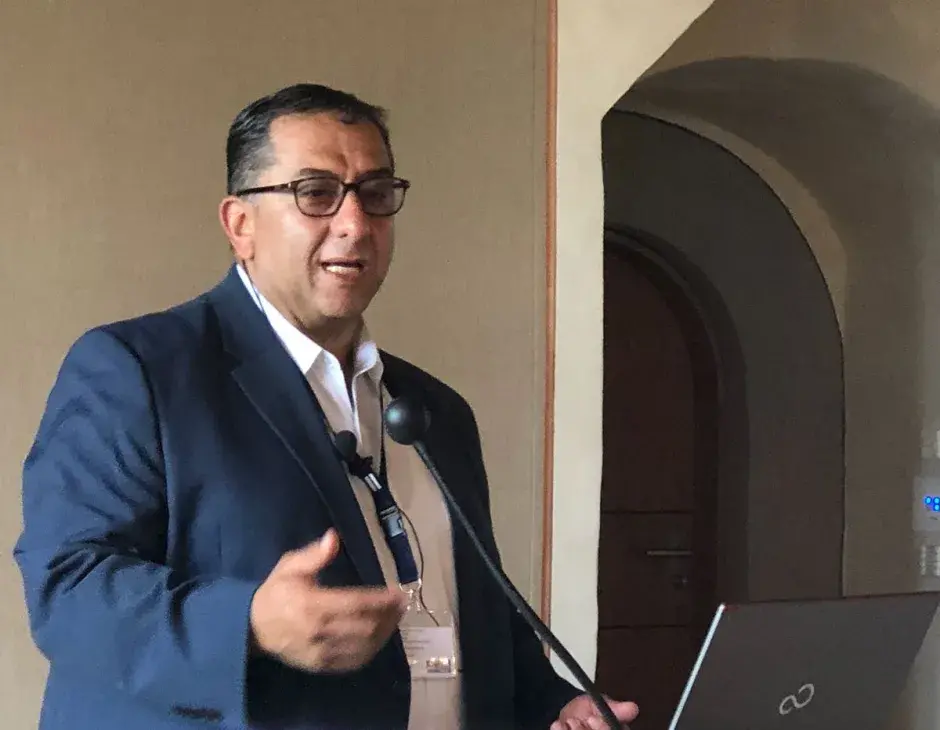"We must shift the focus to practical issues" KAICIID Special Adviser on Engaging Religious Communities
London, 12 July: The International Dialogue Centre (KAICIID) Senior Adviser, Professor Mohammed Abu-Nimer, shared experience and expertise on promoting peace through dialogue in the Arab World, and discussed KAICIID initiatives at the workshop “Interreligious Engagement and Freedom of Religion or Belief: A New Policy Approach for the Mediterranean” in London on 12 July. Promoted by the Italian Ministry of Foreign Affairs and Institute for International Political Studies (ISPI), the event brought together more than 30 experts, diplomats, policy makers, civil society actors and religious leaders to discuss how government institutions can better engage with religious leaders and faith-based organizations to promote freedom of religion and foster pluralism, social cohesion and sustainable peace.
Drawing on the experience and expertise of the participants, thematic panels focused on interreligious dialogue and collaboration in peace building, combatting intolerance and discrimination based on religion, promoting freedom of religion, and promoting sustainable development and humanitarian assistance.
Speaking on interreligious dialogue activities in the Mediterranean, Professor Mohammed Abu-Nimer shared his experiences, as well as the work of KAICIID in the region, such as the Social Media as a Space for Dialogue Programme, the Network of Religious Faculties & Institutes in the Arab World, and recently launched Interreligious Platform for Dialogue and Cooperation in the Arab World..
“First and foremost, we must engage with formal religious institutions because they are the primary agents with access to these communities on daily basis. We must shift the focus to practical issues that matter at the community level such as rule of law, improving education, safety and security, basic mobility, protection of sacred sites, etc., by also engaging the big religious institutions, not just FBOs and those already willing to dialogue.”
The workshop proceedings concluded that engagement with religious actors and interreligious dialogue is crucial toward promoting freedom of religion and belief, combatting intolerance and discrimination, looking forward to a shared vision of how interreligious dialogue can be operationalised into a policy tool for governments and international organisations to engage with religious actors to building sustainable peace and combatting intolerance and discrimination.
This workshop is the beginning of a consultation process that aims to develop policy guidelines, on how interreligious dialogue and collaboration can be successfully operationalised to further the aims of peace, sustainable development and human rights protection.

